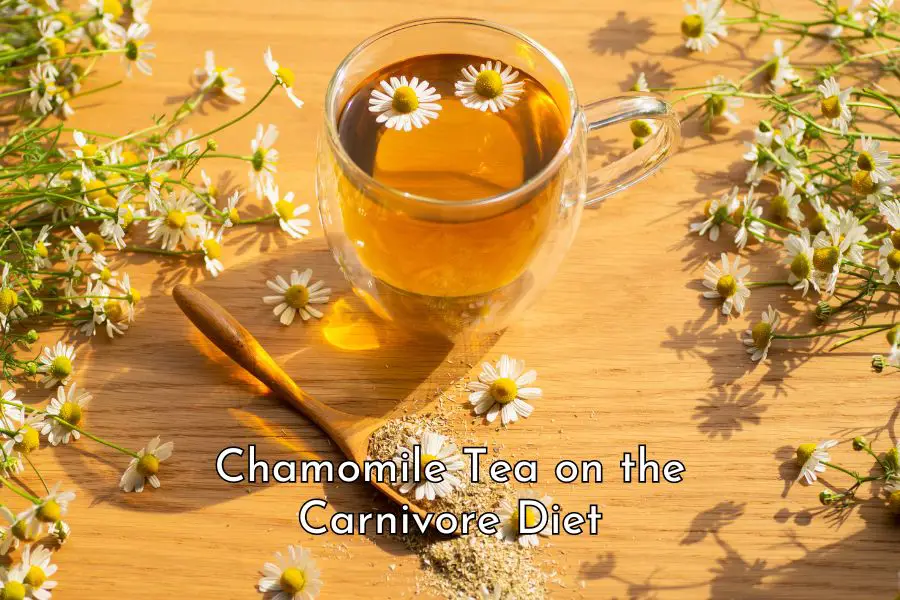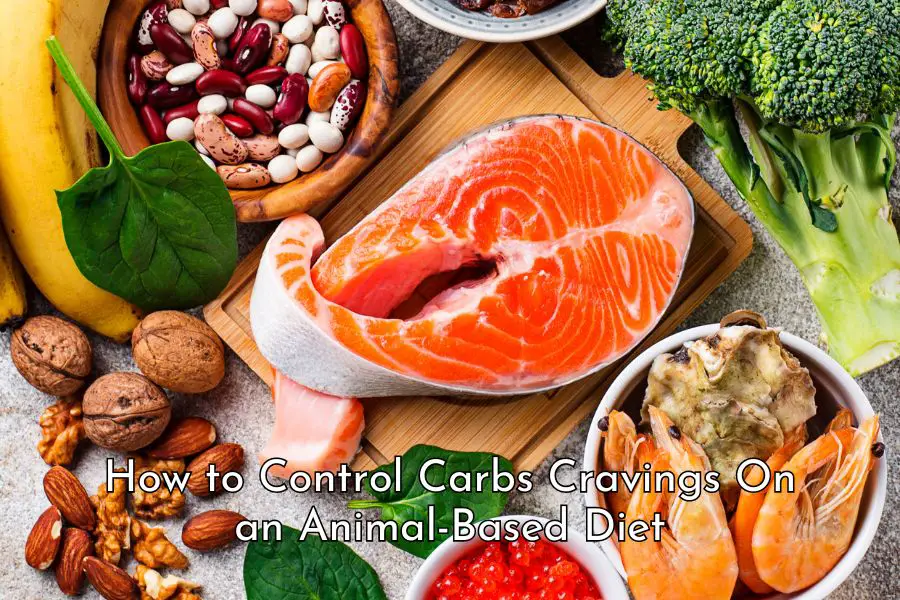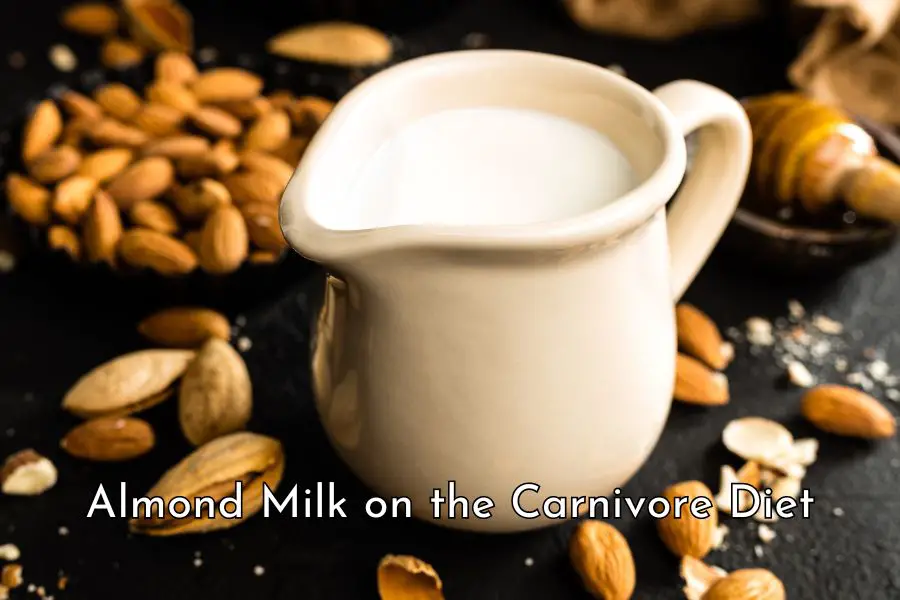You’re interested in the carnivore diet and wonder what drinks are allowed on this diet? Can you still have tea and coffee? Are sports drinks okay? Is alcohol okay? Do you need electrolytes? Is milk okay? This article will go through an extensive list of possible drinks and answer every possible question you may have about drinks on the carnivore diet.
Drinks that are great on the carnivore diet are water, bone broth, and milk. Drinks that are generally okay in moderation are protein shakes and herbal teas. Drinks that you should definitely avoid are all soft drinks, energy drinks, sports drinks, flavored milk, coffee, tea, and alcohol.
Drinks that are great on the carnivore diet
The three drinks that are the best on the carnivore diet are water, bone broth, and milk. Water is essential for life while bone broth and milk are both animal-sourced, super nutritious, and free from anti-nutrients.
1. Water
Why water?
Water is essential for life. Up to 60% of the adult human body is water. It is the major component of most body parts. It is needed in the brain to make neurotransmitters and hormones. It helps deliver oxygen all over the body, keeps your mucosal membranes moist, allows your body’s cells to grow, survive, and reproduce. It lubricates joints, flushes out waste, regulates body temperature, and does a lot more.[1]
How much water should you drink in a day?
Everybody’s water requirement is different depending on gender, body size and composition, health conditions, diet, level of physical activity, temperature, and environment. The general rule is to let your body guide you and drink to thirst.
You probably have heard of the 8 x 8 recommendation which is to drink eight 8-ounce glasses a day. However, this has absolutely no scientific basis. A study in 2002 that sought to find the origin of this advice found no scientific studies supporting it. Further, the author finds that: [2]
Surveys of food and fluid intake on thousands of adults of both genders, analyses of which have been published in peer-reviewed journals, strongly suggest that such large amounts are not needed because the surveyed persons were presumably healthy and certainly not overtly ill.
Interestingly, The National Academies of Sciences, Engineering, and Medicine[3] recommends even a higher water intake for adults from all beverages and food at:
- about 2.7 liters (91 ounces) a day for women
- about 3.7 liters (125 ounces) a day for men.
However, again, this is just an average and individual needs can vary significantly depending on a number of factors as mentioned above. So it’s best to listen to your body and let it guide you.
What is the best water to drink?
If you can afford and have access to, the best water to drink would be mineral water and spring water. If not, just plain tap water is fine.
Below are various types of water that are widely available at retail outlets.
- Spring water. This is water bottled from a natural spring, which is a place where water moving underground finds an opening to the land surface and emerges. Spring water passes through rocks and contain beneficial minerals though the quantity would be minuscule. Commercial spring water is treated to remove chlorine, sediment, and other impuritans while retains the healthy minerals.[4, 5]
- Mineral water. This is water from mineral springs. According to the Food and Drug Administration (FDA), mineral water must contain not less than 250 parts per million total dissolved solids. These minerals must come from natural sources and no minerals should be added.[6]
- Alkaline water. pH is a measure of how acidic a substance is. Alkaline water has a pH level of around 8 to 9 compared to regular tap water of around 7.5. Because of the high alkaline level, there are claims that alkaline water neutralize acid in your bloodstream. However, there is little evidence to support such claims.[7]
- Sparkling water. This is water that has been infused with carbon dioxide gas under pressure. Some sparkling water can have added minerals, sugar, salt or artificial sweeteners for taste. There is some evidence that sparkling water can have erosive effect on tooth enamel due to its acidity.[8, 9]
- Distilled water. This is water collected from the vapour of boiling water. Impurities are removed but so are any minerals. This water is very bland compared to spring water and tap water.
- Filtered water. This is usually tap water that has gone through a filtration system that removes puritans such as chlorine, fluoride, pesticides, herbicides, nitrates, other chemicals and bacteria.
- Tap water. Tap water comes from underground or surface and has been filtered and disinfected to make it safe to drink. Sometimes fluoride is also added to prevent tooth decay. However, not all impurities can be removed.
Our ancestors would just have natural water which would have contained some organic matter and a bit of mineral. However, there are potential health risks if you drink untreated natural water harvested from springs or rivers.
Looking at the above list, the two best types of water to drink are probably spring water and mineral water. Alkaline water is okay too but I would stay away from sparkling and distilled water.
If you can’t afford mineral water, spring water, or alkaline water, tap water or filtered water is perfectly fine. You can of course drink bone broth regularly to compensate for its lack of mineral content. But the risk of not getting enough vitamins and minerals on the carnivore diet is very small because animal source food is the most nutrient-dense food you can eat.
2. Bone broth
Bone broth is full of nutrients including collagen, gelatin, glycine, glycosaminoglycans, glutamine, proline, and minerals.
It has many health benefits such as gut healing, digestion, improving joint and bone health, fighting fatigue, supporting skin, hair, and nail health, improving mood and sleep, and supporting immune function.[10]
Bone broth is also a way of honoring an animal’s sacrifice by not wasting any part and is very easy to make.
This is a link to a super-easy bone broth recipe that also has many tips and troubleshooting for newbies.
3. Milk
Why milk is great on the carnivore diet?
If you don’t have any specific health issues with dairy, milk is a great addition to your carnivore diet.
This is because milk is a complete food that provides complete proteins, good fats, carbohydrates, and essential vitamins and minerals. It is also highly bio-available, free from toxins, and has many proven health benefits. Raw milk, a living food, has even more amazing benefits that are not found in pasteurized milk.
If you are still unsure if you should drink milk on the carnivore diet, please read this post which covers this very topic in-depth.
Cases where you may want to avoid milk
The only two cases where you should not drink milk are if you are sensitive to dairy products or if you are trying to lose weight with the carnivore diet.
- If you suspect that you may be sensitive to milk or dairy products in general, try to eliminate it for a period of time and see how you feel and then reintroduce it later. The best milk to reintroduce and test out intolerance is raw milk, if you can access to safe a raw milk supply. If you can’t choose the least processed possible
- If you are trying to lose weight with the carnivore diet, milk should also be eliminated or consumed sparingly because of its sugar content. Dairy products are also generally very high in calories and have low satiety levels.
Best types of milk to drink
The best type of milk to drink is raw milk. Raw milk intended for human consumption, directly from cows to glasses, is very safe. This kind of milk is generally from pasture-raised cows and is subject to management practice to ensure the animals are healthy and the milk is clean.
If you still have doubt, again please read this post where I talk in detail as to why raw milk is healthy and safe to drink. I also include a list of where you can find raw milk supplies in this post.
The most common types of milk you find in the supermarket are:
- Unhomogenized and pasteurized. This milk is only heated to about 74 degrees for about 15 seconds.
- Homogenized and pasteurized. This milk is heat-treated as above but also processed so that the cream does not separate.
- Long-life milk, homogenized and ultra-heat-treated. Long-life milk is heated to 140°C for two seconds and processed so that cream does not separate.
If you don’t have access to raw milk, it’s best to stick to the least processed milk as possible which is full cream, pasteurized but unhomogenized.
Fermented milk like yogurt and kefir are also great if they are made from plain whole milk with nothing artificial added.
Drinks that are okay in moderation on the carnivore diet
1. Protein shakes
Protein shakes I refer to here are those made from milk protein powder like casein and whey.
In my opinion, protein shakes are okay on the carnivore diet because they are animal-based, fast-absorbing, highly bioavailable, convenient, and relatively cheap.
There is also evidence suggesting that protein supplements may enhance muscle mass and performance.[11, 12] This is the main reason why protein shakes are so popular amongst bodybuilders.
However, they should be consumed in moderation because the protein powder used to make them is a form of processed protein and can contain added sugar, artificial flavor, sweeteners, and other chemicals (see examples below).
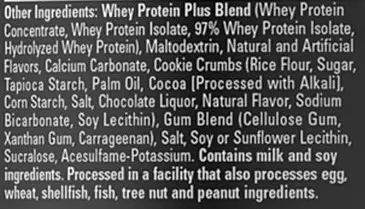

The best protein sources are from whole foods like fresh meat or raw milk. If you are not a bodybuilder, drink it very sparingly.
2. Herbal teas
The term ‘herbal teas’ refers to drinks made from brewing leaves, flowers, or roots of plants, apart from the tea plant (Camellia sinensis).
There are many kinds of herbal teas, some common ones are ginger, lemon, chamomile, peppermint, rooibos, hibiscus, rosehip, dandelion root, cinnamon, lemongrass, fenugreek, stinging nettle, and echinacea.
There are many claims of health benefits of herbal teas and they are often used as home remedies for various issues from calming effects and mood-lifting or to treating cold, cough, and sleeping difficulty.
Some observational studies suggest there may be associations between herbal tea consumption and a reduced risk of liver and thyroid disease.[13] Because observational studies can only identify associations, and can’t prove causation, we don’t know if these health benefits are due to herbal teas or other related lifestyle factors.
Herbal teas have anti-nutrients, however, they do not contain caffeine which interferes with the proper functioning of your brain and is highly addictive.[14, 15]
For the above reasons, in my opinion, it is okay to have herbal teas occasionally to add variety to your beverage range.
It would be good if you can rotate them regularly rather than just drink a large quantity of one type. As mentioned above, herbal teas would have plant anti-nutrients, rotating them would avoid the risks of accumulating a particular kind of plant toxin and give your body time to process it.
Drinks you should avoid on the carnivore diet
1. Flavored milk
You should avoid flavored milk like chocolate milk and strawberry milk which is usually high in added sugar, calories and contain additives.
The table below shows the nutrition in whole milk and some flavored milk sold by Walmart and Morning Fresh Dairy Farm.
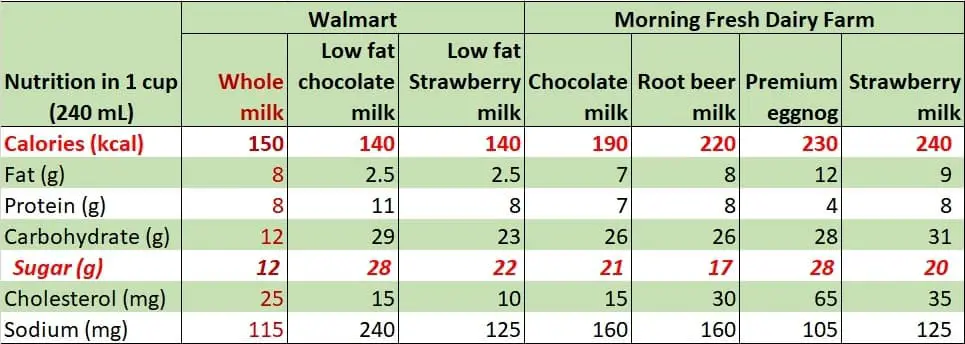
As you can see, a cup of whole milk contains 12g of natural sugar but a cup of low-fat chocolate and strawberry milk contains 28g and 22g of sugar respectively. As the fat is removed to appeal to fat-fearing customers, sugar is usually added to improve the taste.
The flavored milk made from whole milk by Morning Fresh Dairy Farm is also substantially higher in sugar (41% to 133% more) and higher in calories (27% to 60% more) compared to plain whole milk.
Flavored milk can also contain coloring, flavoring, processed sugar, and other additives.
For example, the strawberry milk made by Morning Fresh Dairy Farm contains ‘All natural Grade A milk, vitamin D3, all natural sugar, and real strawberries’.
The strawberry milk sold on Walmart contains the following: ‘Lowfat milk, sugar, crystalline fructose, natural flavor, cellulose gel, cellulose gum, red #40, disodium phosphate, carrageenan, vitamin A Palmitate, Vitamin D3‘.
2. Coffee
You should not drink coffee on the carnivore diet or any other diet for that matter because coffee contains:
- caffeine, a stimulant that interferes with the normal healthy functioning of your brain and has an adverse impact on your health in general,
- acrylamide, a byproduct of the roasting process which is a neurotoxin and a carcinogen,
- ochratoxin, a fungal mycotoxin that is a nephrotoxin, a liver toxin, an immune suppressant, a potent teratogen, and a carcinogen, and
- pesticides and herbicides that can be extremely toxic and cause serious long-term health problems.
The benefits of coffee consumption in humans are based on observational studies only which only show associations and can’t prove causation. In animal studies, coffee is found to contain substances that cause serious health problems.
While I have mentioned several times on this site that it is generally okay to add some seasonal plant food to the carnivore diet, it is impossible to do so with coffee because of its highly addictive nature.
I have written at length about this topic detailing the evidence and expressing my view as to why coffee should definitely be avoided in this post, so I won’t go into further detail here. But please check it out if you have any doubt at all about whether you should keep drinking coffee on the carnivore diet.
The answer is clear: you shouldn’t.
The question is whether you can give it up or when you should try to give it up if you currently depend on coffee to function.
If you are currently on the standard American diet and want to start the carnivore diet, you will have to quit soft drinks, sugary snacks, processed foods, carbs, and other plant food. It’s probably best not to attempt to quit too many things all at once.
My personal view is that if you want to quit coffee too, get yourself fully adapted to the carnivore diet before trying. Here is a step-by-step guide to starting the carnivore diet. It will show you how to start the carnivore diet in a way that fits your personal circumstances and preferences.
3. Tea
Similar to coffee, in my view, it is best to avoid drinking tea (green tea, black tea, oolong tea, dark tea, white tea, yellow tea, etc) on the carnivore diet or on any other diet for that matter. This is because while the health benefits of tea on humans are inconclusive due to the nature of epidemiological studies, antinutrients in tea such as oxalate, caffeine, tannins, and phytate are proven to be harmful.
- Oxalate. Oxalate can bind with calcium and other minerals to form oxalate crystals, the main ingredient in kidney stones. Oxalate crystals can cause damages to the eyes, immune system, neurological system, GI tract, and connective tissues
- Caffeine. A widely consumed psychostimulant, as mentioned above caffeine interferes with the normal healthy functioning of your brain and have an adverse impact on your health in general. For a more detailed review of risks associated with caffeine consumption, please read this post
- Tannins. Tannins are a type of polyphenols that produce an astringent or bitter taste in green tea. and some other fruits. Tannins bind and precipitate proteins. They also bind with digestive enzymes and can adversely interfere with digestion and metabolism. Tannins can also obstruct the absorption of iron
- Phytate. Why some animals can handly phytate, humans can’t. Phytate in tea can reduce the absorption of minerals such as iron, zinc, magnesium and calcium from food.
4. Alcohol
Alcohol is a psychoactive drug that has been consumed all over the world for thousands of years. Alcohol is made by fermenting fruits, grains, and vegetables and definitely not a carnivore food.
You should not drink alcohol on the carnivore diet or on any other diet for that matter because alcohol is a psychoactive drug that is capable of seriously affecting neurological pathways in your brain, altering your behaviors, and adversely impacting your health and wellbeing. In particular, health risks associated with alcohol consumption include:
- Interfering with your brain function
- Messing up your sleep
- Reducing your testosterone and ability to build muscles
- Causing weight gain
- Impairing sexual performance
- Causing dehydration and loss of micronutrients
- Damaging your liver
- Increasing blood pressure
- Affecting fertility
- Damaging your digestive system
- Increasing the risk of pancreatitis
- Increasing the risk of various cancers
- Commercial alcohol can contain many harmful substances
- Causing massive health and social problems worldwide.
In short, alcohol is toxic and can wreak havoc on all aspects of your health.
There is evidence of health benefits from moderate alcohol consumption such as brain, gut, and heart health, psychological benefits such as lowering stress and depression and increasing pleasant and happy feelings, plus some other health benefits.[16, 17, 18, 19, 20, 21, 22]
However, in a 2018 global study titled ‘No level of alcohol consumption improves health’ examining the impact of alcohol on injury and disease and published in The Lancet, the authors conclude that:
The conclusions of the study are clear and unambiguous: alcohol is a colossal global health issue and small reductions in health-related harms at low levels of alcohol intake are outweighed by the increased risk of other health-related harms, including cancer. [23]
If you would like to find out more about this topic, please read this post. It covers what alcohol is, how it is metabolized in your body, how alcohol affects your whole body including your brain, sleep, hormones, micronutrient status, fertility, and many other functions as well as claims of health benefits associated with alcohol consumption.
5. Soft drinks and energy drinks
You should not drink soft drinks and energy drinks on the carnivore diet because they have no nutrition and are practically just empty calories, caffeine, and chemicals.
As can be seen from the examples below, common ingredients in soft drinks and energy drinks are:
- carbonated water
- sugar
- coloring
- flavoring
- caffeine
- additives and preservatives.
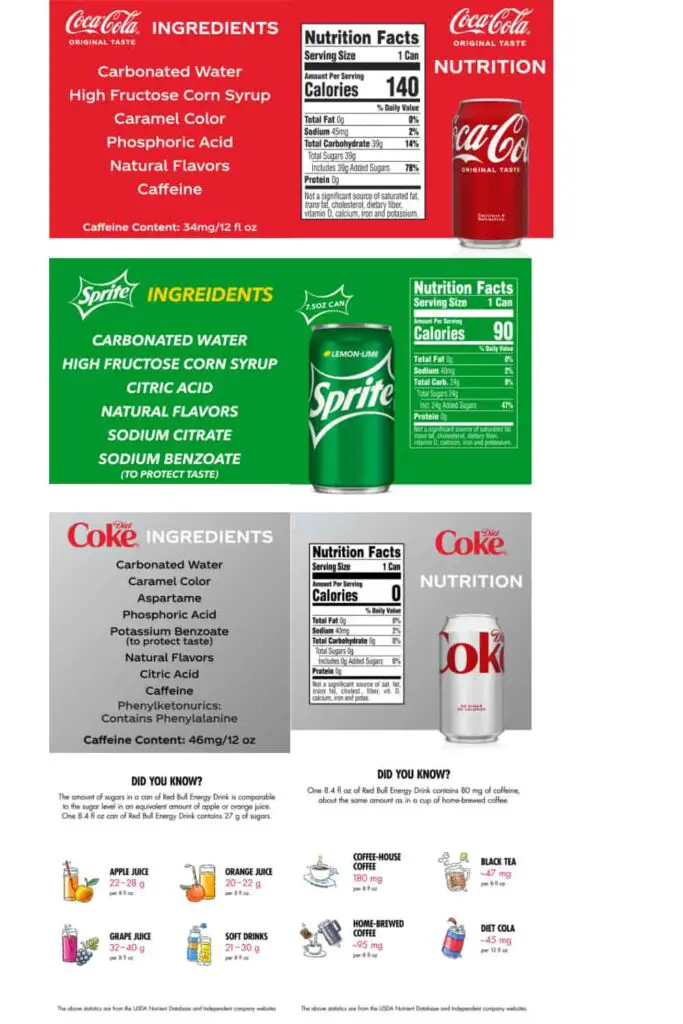
Potential health problems associated with excessive consumption of soft drinks are tooth decay, insulin insensitivity, and obesity due to their high sugar contents.
Furthermore, as mentioned above in the alcohol and coffee sections, caffeine is an addictive stimulant that interferes with the normal healthy function of your brain and can cause many health problems.
6. Sports drinks
You should not drink sports drinks on the carnivore diet because, similar to energy and soft drinks, they contain empty sugar and are full of additives.
Sports drinks are used to replenish water and electrolyte loss through strenuous exercises.
Sports drinks may also contain minerals such as calcium, magnesium, potassium, and sodium as well as vitamins.
However, many sports drinks are high in simple sugar (glucose, high-fructose corn syrup, sucrose) or artificial sweeteners which also have a similar impact on insulin as actual sugar.
For example, a 591mL bottle of Gatorade has 36g of carbohydrate, 34g of which is added sugar. Similarly, a 591 mL bottle of Powerade has 35g of carbohydrate, all of which is added sugar.[24]
The vitamins and minerals are simply a marketing tactic, people don’t drink sports drinks for the nutrients, they drink them for the boost of energy due to the sugar.
You don’t need to drink sports drinks for the added vitamins and minerals, you can get plenty of those on the carnivore diet already.
If you think you need electrolytes after a strenuous exercise, make a sports drink yourself with a few drops of mineral and electrolytes.
Disclaimer: The information in this post is for reference purposes only and not intended to constitute or replace professional medical advice. Please consult a qualified medical professional before making any changes to your diet or lifestyle.


